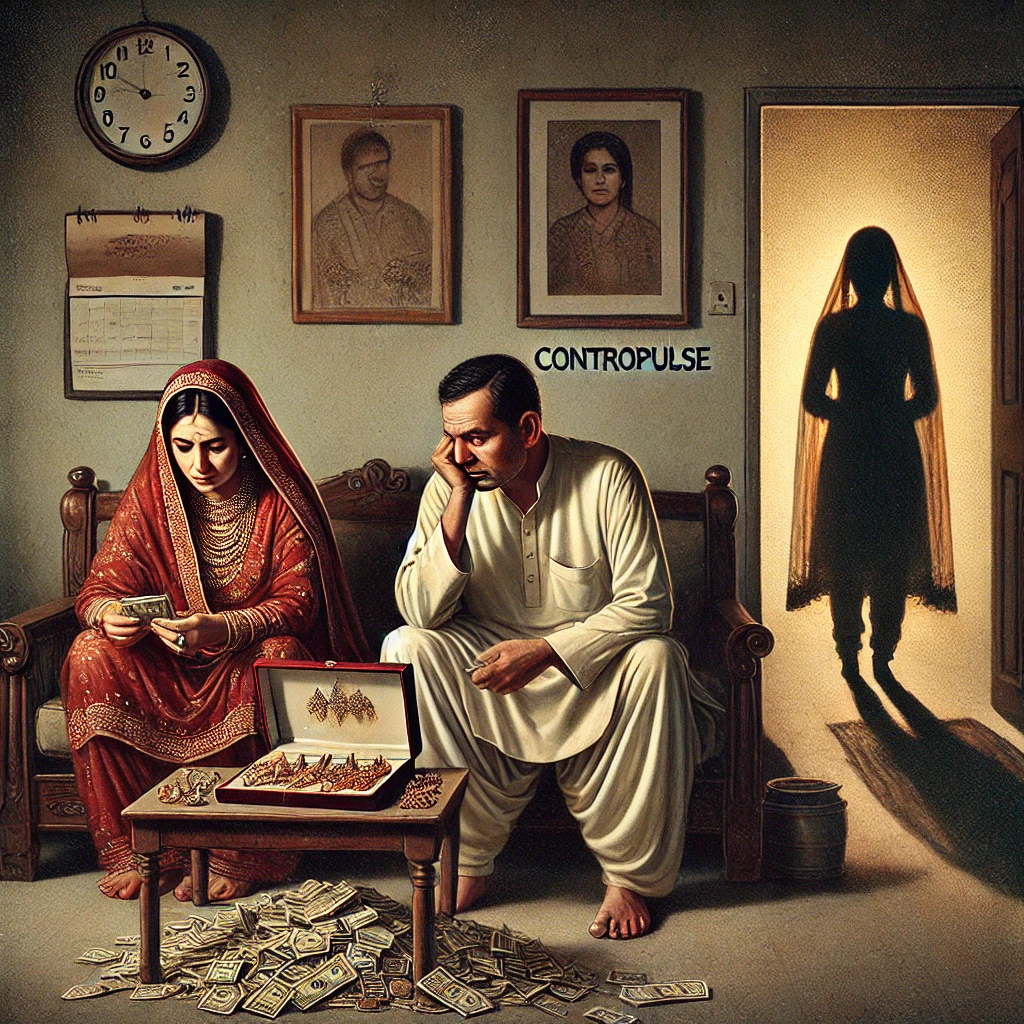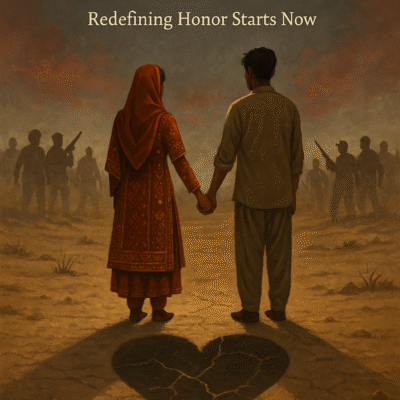Introduction
In any society, culture is fundamental. It gives people a means to live their lives following particular customs, values, and standards. These customs serve some hidden goals for the well-being of individuals. However, occasionally, people favor cultural customs to take advantage of others in the community like the dowry system. In Pakistani society, dowry plays a crucial role. In the past, a limited amount of items were given to girls as security which they later called “dowry”. However, people today pay dowries for a variety of reasons. It now produces structural violence. The parents worry a lot when their daughter is not given a dowry.
As parents, we worry that if we don’t follow this social norm, our daughters might remain unmarried. we are also concerned that refusing could lead to their husbands and in-laws treating them poorly, putting their marriage at risk.

How Differences in Social Status Impact on Dowry
Although the economic standing and quality of life of the rich and poor classes differ greatly, the wealthy give their daughters every luxury possible when they get married. Therefore, it is also expected of the poor to contribute expensive and valuable objects. In Pakistan, parents only want their daughters to get married and give a significant amount of value to their sons. Talking about the dowry is one of the most important topics throughout the marriage proceedings. It is easy to overlook the girl’s safety and other crucial matters. Even though it is deemed improper, the boys’ families’ expectations are still attempted to be met.
People are eventually using loans to pay for their dowries. In Pakistani society, it is common for people to marry their daughters after taking out large loans. Numerous parents are unable to pay back this dowry loan, and the in-laws are also demanding new goods. If this is not done, the girls will soon get divorced and their home will be destroyed. Individuals only perceive the positive aspects of providing dowries, but they frequently overlook the fact that this custom makes individuals feel inferior and raises the number of suicides and instances of physical and verbal abuse that females experience.
Parents must be aware of this issue as well. The marriage of their daughter is a major concern for the parents. They spend a lot of money on marriages but little on their education. The majority of households see their daughters as a burden. They believe that for girls, marriage is a life-or-death situation. As a result, they give their daughters over to greedy people. Parents try to fulfill all the unnecessary desires of daughters’ in-laws just to see her happy. But, if they could not do that, the daughter have to face emotional suffering.
Considering Daughters a “Duty”
After paying a substantial dowry, is there any assurance that girls will live happy lives? Respect and love should be the foundation of a marriage, not economic belongings. The most significant institution in Pakistani society is the family. Families can contribute to the eradication of dowry, which is a social evil. In my opinion, this social issue can be resolved if parents refuse to pay dowries and are prepared to support and encourage their daughters. Families, however, present the notion that “the sooner the daughter’s duty is paid, the better.” I am not suggesting that it is wrong to perform the women’s responsibilities of marriage, but we should be aware of the exploitation of women’s rights.
Can Dowry be an Evidence of Restricting Violence?
Is the dowry still justified even when It makes impoverished people’s marriage customs more difficult? It is appropriate for parents to give their daughters some basic items that they may easily afford and to do so without putting unnecessary stress on them. Divorce rates are high in Pakistani society. The question then becomes, why are women threatened with divorce after paying the dowry? I once went to a wedding in a far-off village. I was shocked to see that they were displaying the dowry in public while people were making negative comments about the furniture, jewelry, clothing, and many other items. The “Numaish” of dowry is becoming more prevalent.
Both those with little money who are compelled to show off their daughter’s dowry and those who have nothing to offer as a dowry are suffering greatly as a result of the dowry tradition. In Pakistani society, religion plays a significant role. In their daily lives, they adhere to religious teachings. People can use their religious beliefs as an excuse for their actions. They contend that the state of Pakistan ought to enact legislation about religion. However, their social mores are entirely at odds with the principles and guidelines that Islam offers. In this sense, the society is in a paradoxical condition.
In Islam, dowry is viewed as a curse but still it is being practiced openly. Even if the dowry is not paid according to demand by the in-laws, it can still have harmful effects. The term “dowry” has no precise meaning. Instead, its definition varies from person to person and from family to family. In summary, it is a general word that is frequently used for personal gain.
Emotional and Psychological Effects of Dowry
People now show dowries voluntarily as a sign of status, prestige, and power. Not even they can afford the dowry or feel comfortable. In Pakistan, it’s customary to get dowries from various relatives before a woman marries. Dowry is a type of violence that can be both obvious and invisible. People are affected emotionally and psychologically. The standard for a dowry indicates that a girl comes from a respectable household, but without one, she will no longer be respectable. Even people’s lifestyles change as a result of globalization. Although women lead autonomous lives, the family institution is valued in Pakistan. Women are not permitted to voice their opinions in matters about marriage, and they marry by their parents’ wishes.
When women attempt to stray from their parents’ preferences, they forcefully enforce their choices on their daughters and are not hesitant to offer a substantial dowry. In Pakistani society, the dowry practice leads to a contradictory position. A lot of people assert that dowries have no religious significance. It causes disparities and inequalities among people. However, they also believe that a dowry is required to demonstrate power. Girls who receive large dowries will be in charge and have the ability to make decisions for their in-laws.
Read the lived experiences of Street Vendors here: (https://contropulse.com/street-vendors-of-commercial-market-lived-experiences/)
Conclusion
These kinds of practices only exploit the family of the girl. Many little to heavy objects are listed under the dowry name. No doubt, some with strong financial backgrounds can afford dowries. As everyone already knows, however, dowries are not just for the wealthy. Instead, it has captivated the impoverished as well. No one gives it any thought. Dowry giving and receiving is an ongoing loop. We participate in this custom, yet it seems to play a significant role in marriages. People therefore do not question it. Not even anyone is worried that the dowry might be incorrect.
Regardless of the economic and financial difficulties people encounter, they must still set up a dowry for their daughters. The phrase “Hammy Jahaeez k Naam par kuch NAHI Cheya” is typically heard at marriage ceremonies, although parents are aware that society will not allow them to survive. To put it briefly, we must attempt to eradicate this evil at our level if we are to remove the curse, such as the dowry. All individuals must light their candles for us to maybe overcome this social ailment. Excessive dramas, TV ads, and family vlogging also contributed to the excessiveness of dowry. To read more, visit: (https://contropulse.com/family-vlogging-a-tool-to-earn-money-or-a-threat-to-privacy/)
References
https://www.scirp.org/journal/paperinformation?paperid=34871





6 Comments